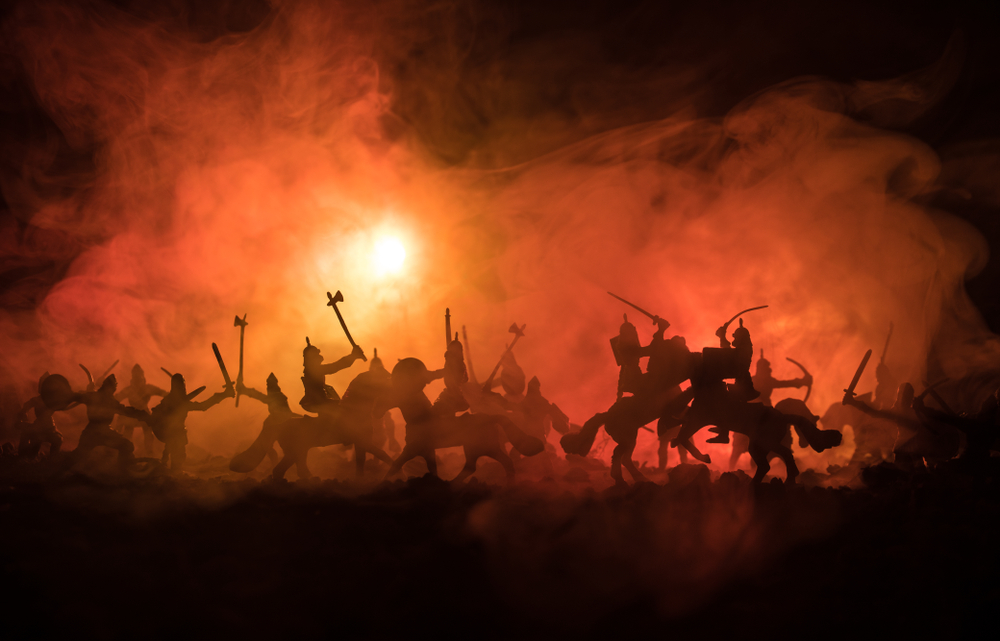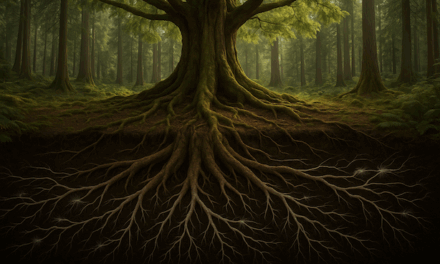In-groups and out-groups are an inevitable feature of human society. We cannot avoid them. They are hard-wired into the way our brains function and, as social animals, we are utterly dependent on belonging to a group for our identity, our status, our goals, our ambitions and our life stories.
In the early stages of human evolution our groups consisted of our family, our clan and our tribe. As hunting and gathering gave way to farming and settled urban life, however, nations and empires added further layers to our expanding social horizons. As culture evolved, so did societies based on shared professions, or on shared religions until gradually the complex world in which we live today emerged, complete with its mind-blowing array of competing groups which individuals can choose to belong to.
Ever since the emergence of language, stories have played a significant role in the development of both individuals and societies. As individuals, from our mid-teens onwards, we start to develop an autobiographical account of our life that makes sense of who we are and where we have come from (what has happened in our lives). This “narrative history”, which itself evolves as we gather life experiences, is a crucial element in the development of our personality. As groups, our social identity is both defined by and expressed in the stories shared by all members of the group. Such stories embody the important paradigms, beliefs and social mores that are valued by the group, and help to ensure group cohesion.
Different groups have different ways of using their core stories to foster group cohesion – religious groups, for example, tend to express their stories in formal beliefs such as credal statements, and require their members to affirm their belief in them. Clubs and organizations often have sets of “rules” which prospective members have to agree to keep, and such rules are invariably supported by stories such as “founding myths”, which reveal the values on which the group is based, and thus invite voluntary acceptance of them. The greater the degree of shared acceptance, the more tightly the group coheres without the need for enforcement.
Evolution has equipped us as individuals with feelings that do a good (but not foolproof) job of guiding us how to behave in the realm of “me” versus “us” within the groups we belong to. It has also provided us with conscious means of overcoming these subconscious processes, through the use of rational thought and the exercise of moral rational choice. It has done a less good job, however, of equipping us well with feelings to guide us in the realm of “us” (as defined by the group that we are a member of) versus “them” (as defined by other groups, whose values differ significantly from our own).
Inevitably, there will be occasions when two or more groups will find themselves competing for scarce or limited resources, whether these resources are physical (such as land or oil) or social (such as power to govern or claims to exclusive truth), and on such occasions, it is natural that a degree of animosity or even hostility will be experienced between them. Unfortunately, the stories that define and express group identity either implicitly or explicitly define the group by emphasising those distinctive characteristics or beliefs that distinguish it from other groups. This allows groups or their leaders to harness the power of these stories to represent other groups’ members as marginal, undesirable, threatening or, in extremis, less than human.
Once a group has been “de-humanized” in the popular imagination, and is perceived as a threat (whether vermin or predator), then our normal rules of how to treat other people no longer apply and forms of mistreatment or open warfare become legitimized. It is hardly surprising, therefore, that news media frequently carry stories of human tragedy caused by inter-group hostility such as terrorist attacks, refugee crises, inter-racial violence, or separatist movements.






